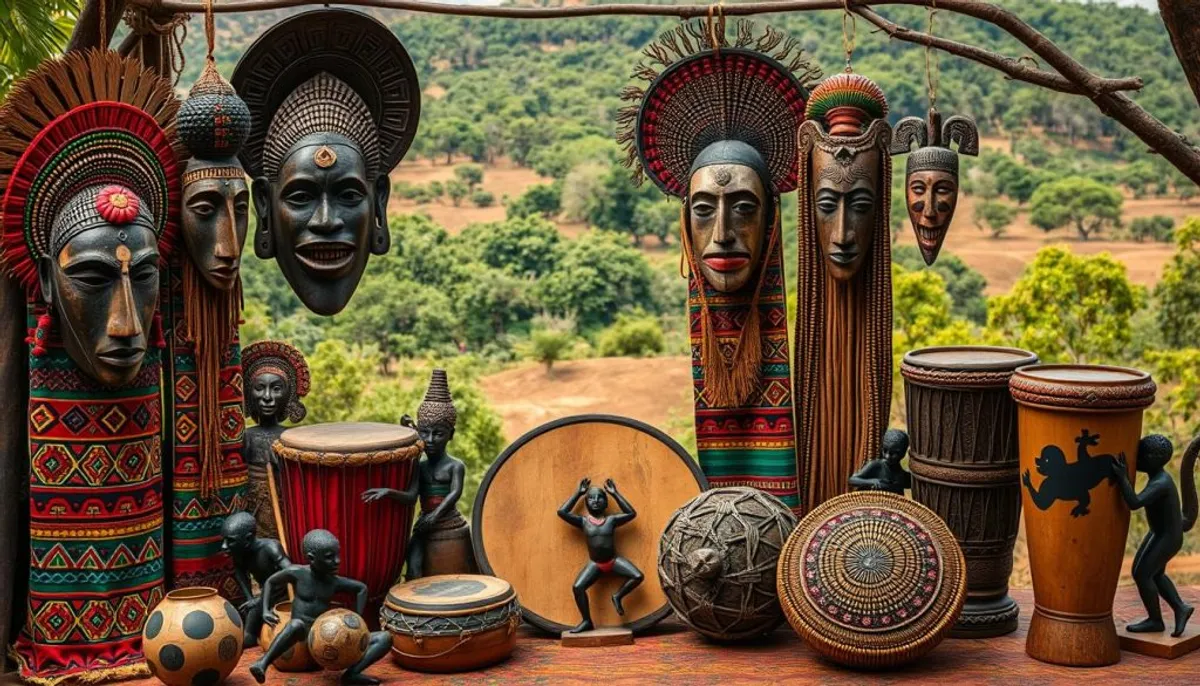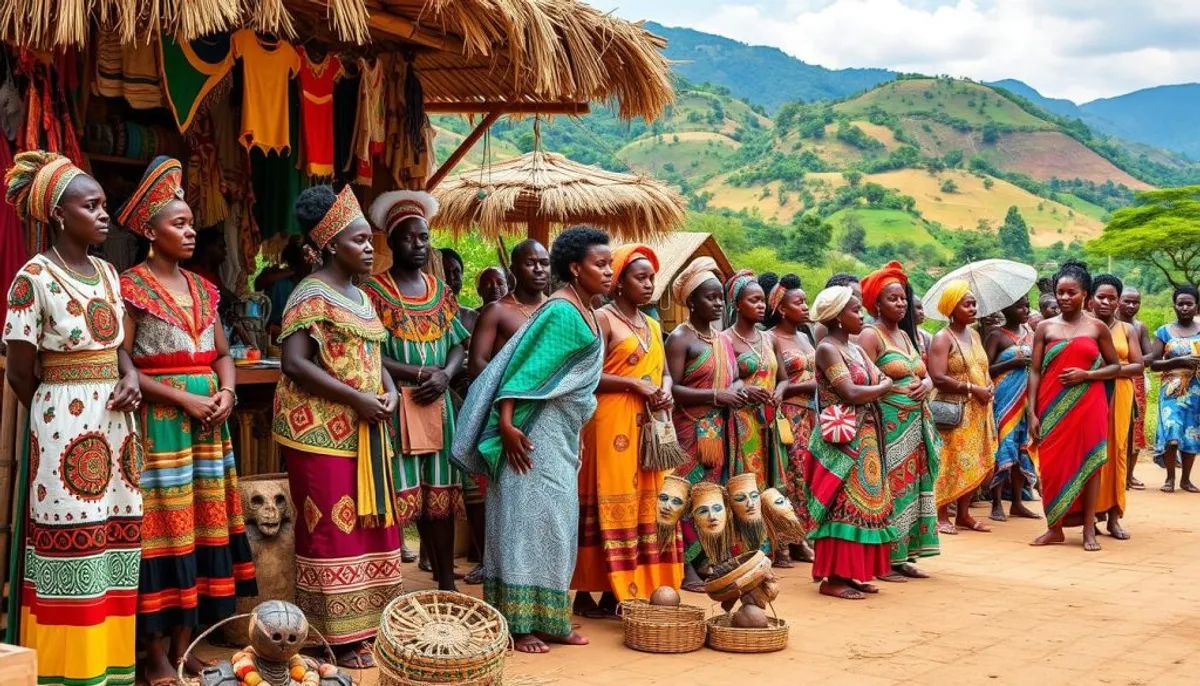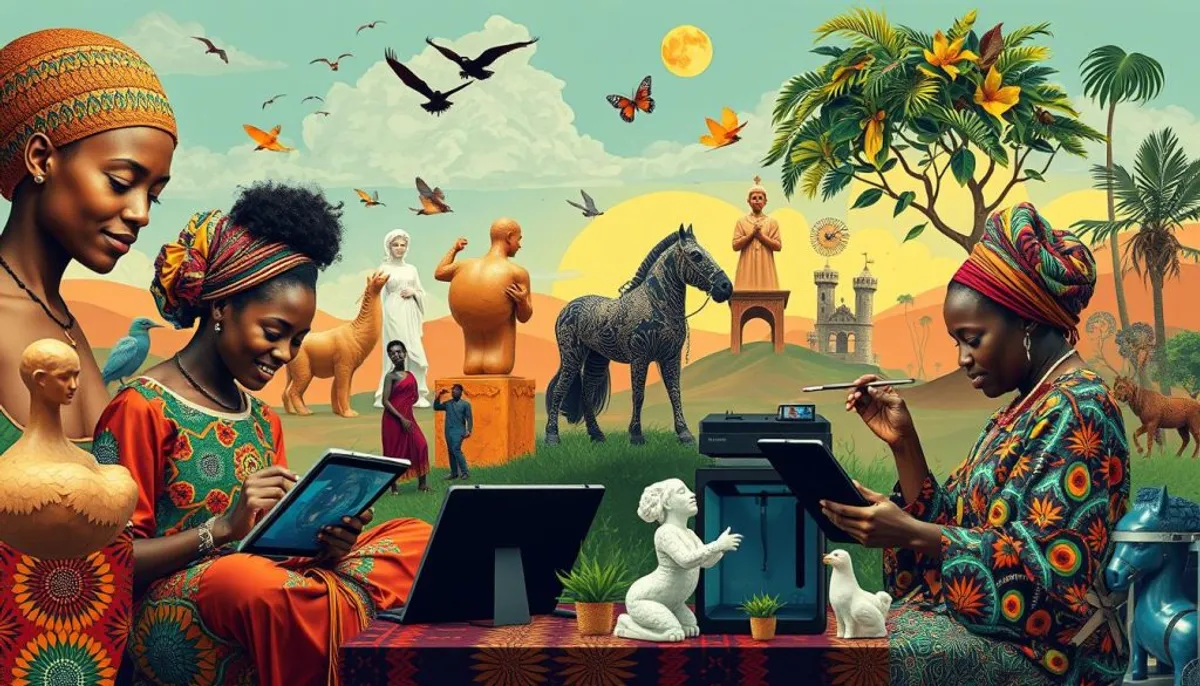The African culture, with its richness and diversity, deserves celebration and preservation. This guide explores methods to enhance this unique cultural heritage. It addresses the importance of traditions, the place of African arts in the modern world, and the essential role of education in transmitting this legacy.
The cultural diversity of Africa is a major identity force. Initiatives like those of WATHI, a citizen think tank for West Africa, propose concrete ways to promote local cultures. Among them are awareness-raising through media and the creation of a regional internet portal to promote West African cultures.

The economic development is also linked to culture. Establishing support funds, inspired by the Cape Verdean model, can support projects by artists and cultural operators. These actions help to enhance the attractiveness of festivals and cultural gatherings in the region.
The Importance of African Cultural Heritage
The cultural heritage of Africa is an invaluable asset for the continent and the world. The cultural diversity of Africa is a major asset for its identity and development. It constitutes an essential pillar for progress and cohesion in Africa.
Cultural Diversity as an Identity Force
Africa is a mosaic of cultures, languages, and traditions. This cultural diversity strengthens African identity. It offers an inexhaustible source of inspiration and plays a crucial role in social cohesion.
African traditions are essential for the transmission of values. They contribute to the strength of social bonds and the unity of the continent.

The Role of Traditions in African Society
African traditions are passed down from generation to generation. In Timbuktu, local artisans preserve ancestral techniques. This knowledge helps to maintain African cultural identity.
They maintain strong social ties. They are essential for social cohesion and the transmission of values.
Major Cultural and Natural Sites
Africa is home to many heritage sites of global importance. The Ennedi Massif in Chad is an example of the continent's natural wealth. It is listed as a World Heritage site.
The Bwindi Impenetrable Forest and the Rwenzori Mountains parks illustrate the importance of natural resources. They promote sustainable development and contribute to biodiversity.
| Heritage Site | Country | Particularity |
|---|---|---|
| Ennedi Massif | Chad | Mixed natural and cultural site |
| Bwindi Impenetrable Forest | Uganda | Exceptional biodiversity |
| Rwenzori Mountains | Uganda | Unique mountainous landscapes |
The preservation of this heritage is crucial for political, economic, and human integration in Africa. The African World Heritage Day, celebrated on May 5, highlights the importance of culture and art. It emphasizes their role in the continent's development.
How to Enhance African Culture in Education
Cultural education is essential to enhance African wealth. By integrating African languages and traditional knowledge into school curricula, we promote a better understanding and appreciation of this unique heritage. This contributes to enriching education, echoing the continent's diversity.
The Integration of Local Languages in Teaching
The inclusion of African languages in education is crucial for preserving the continent's linguistic diversity. Countries like South Africa, Ethiopia, and Kenya have officially adopted one or more national languages. This approach allows students to maintain a strong connection with their culture of origin while developing their language skills.
The Transmission of Traditional Knowledge
African traditional knowledge constitutes a treasure of ancestral wisdom. It is essential to pass it on to new generations. Integrating this knowledge into school curricula enhances African cultural heritage. It promotes a more diverse and inclusive education.
The Role of African Tales and Literature
African literature offers a unique window into the culture and history of the continent. Using traditional tales and African literary works in the classroom allows students to familiarize themselves with their cultural heritage. For example, studying poems by Francophone African authors like Senghor stimulates reflection on cultural themes. It fosters intercultural exchanges.
| Cultural Integration Methods | Benefits for Education |
|---|---|
| Ethnocultural films | Lasting impact on cultural understanding |
| Artistic activities | Discovery of history and customs |
| Black History Month | Promotion of cultural diversity |
| Analysis of African poetry | Stimulating reflection and exchanges |
The Modernization and Promotion of African Arts
The enhancement of African arts requires effective modernization and promotion. Cultural industries are at the heart of this process, offering new opportunities for African artists.
The Development of Cultural Industries
Cultural industries in Africa are experiencing remarkable growth. They create jobs and stimulate the local economy. African music, cinema, and fashion are gaining popularity on the international stage.
Innovation in Performing Arts
Artistic innovation is at the core of African performing arts. Artists blend traditions and modernity, creating unique performances. Festivals of contemporary African art attract a global audience.

Support for African Artists and Creators
Support for African artists is crucial. National cultural support funds are developing. They finance innovative projects and assist creators in their artistic journey.
| Initiatives | Impact |
|---|---|
| Heritage training | Improved preservation |
| Digitization of archives | Wider access to culture |
| International partnerships | Increased tourism |
These efforts to modernize and promote African arts contribute to the global recognition of the continent's cultural richness. They pave the way for a promising future for cultural industries and African artists.
Economic and Tourist Enhancement
The African heritage hides considerable economic potential. Cultural tourism proves to be an essential lever for energizing the cultural economy. For example, the Dak'Art contemporary art biennale in Senegal attracts thousands of visitors. It showcases the talent of African artists.
The cultural economy in Africa is experiencing significant expansion. Nigerian cinema, Nollywood, has become a pillar of the regional industry. African music, with artists like Youssou Ndour and Salif Keita, shines on the global stage. These successes generate significant jobs and income for local communities.
For sustainable development, enhancing cultural heritage and African cultural legacy is essential. Preserving historical archives, often threatened, requires digitization skills. Companies like Arkhênum train local technicians to protect this precious heritage.
Craftsmanship, gastronomy, and African literature offer strong growth potential. Their promotion in local and international markets remains to be optimized. Integrating digital technology into cultural production would reach a wider audience. This would energize this promising sector.
Conclusion
Enhancing African culture is a crucial issue for the continent's future. It requires a balanced approach between heritage preservation and adaptation to contemporary challenges. Statistics show that a cultural paradigm shift is essential to stimulate development and increase productivity in Africa.
The cultural influence of Africa relies on the recognition and integration of local knowledge. These traditional knowledges, long neglected, are now considered a major asset for sustainable environmental management and biodiversity conservation. Their enhancement contributes to strengthening African identity while promoting development that respects traditions.
The future of African culture depends on its ability to open up to the world while preserving its authenticity. This involves promoting a holistic vision of local knowledge, strengthening cultural industries, and supporting African creators. By meeting these challenges, Africa can assert its place on the global stage and fully contribute to the enrichment of the cultural heritage of humanity.
RelatedRelated articles


